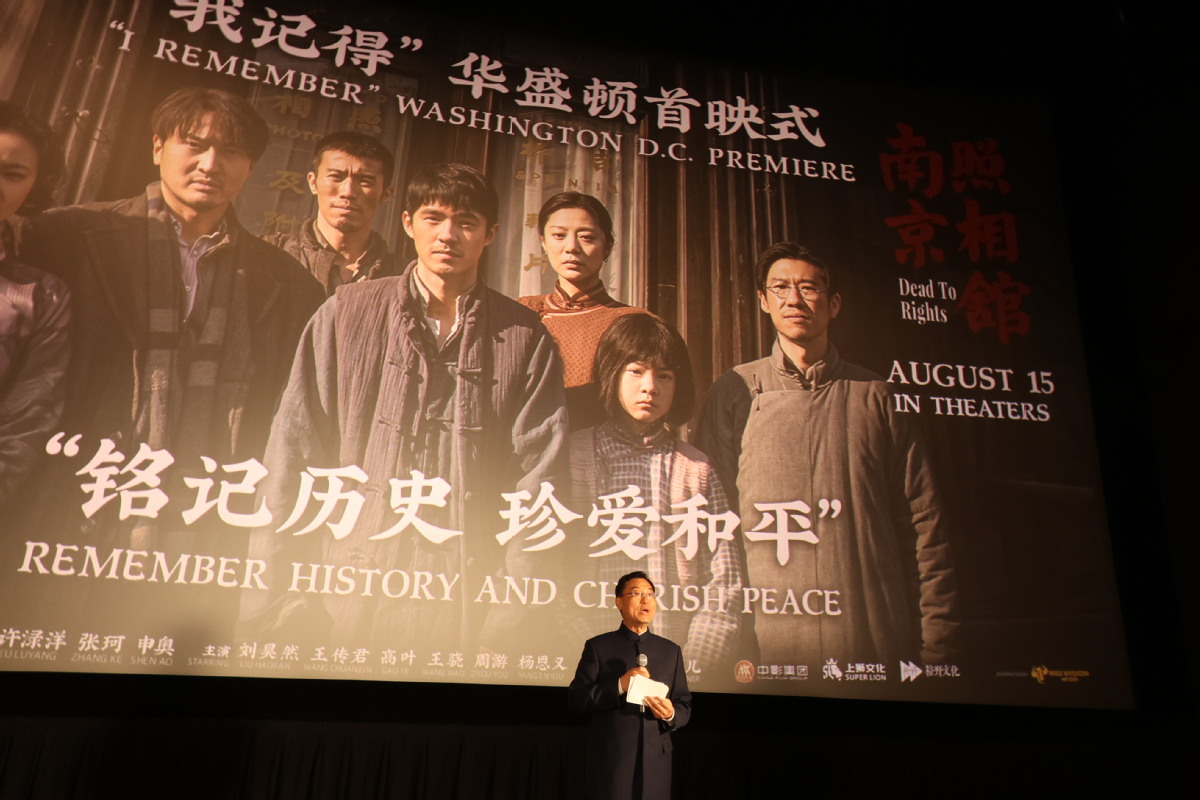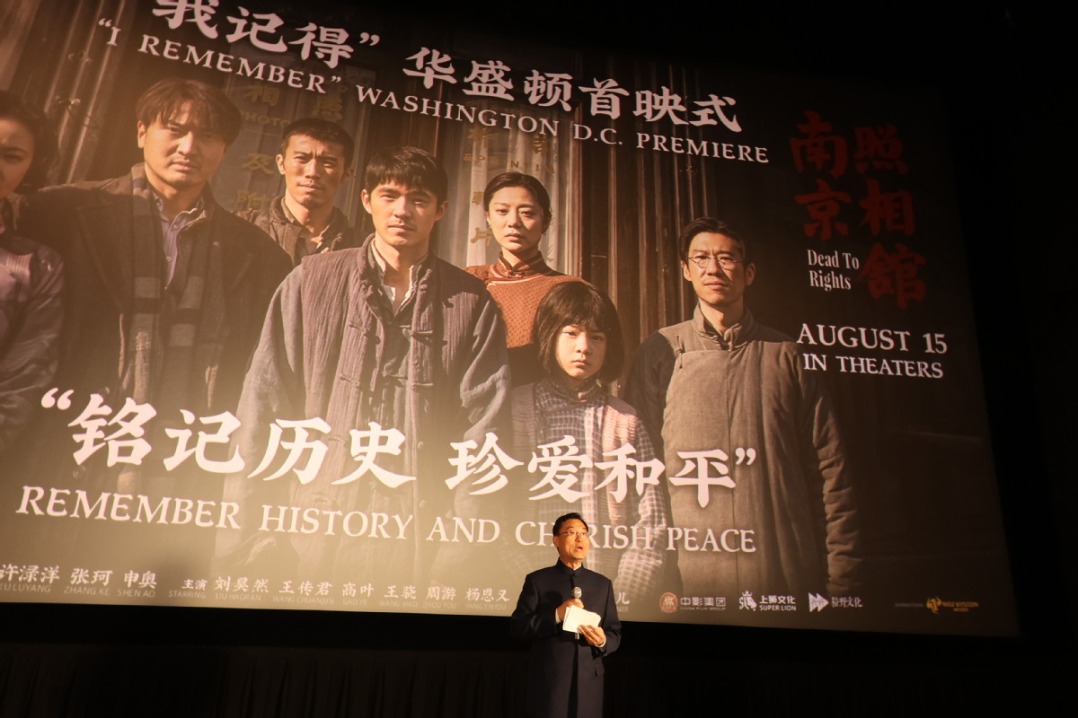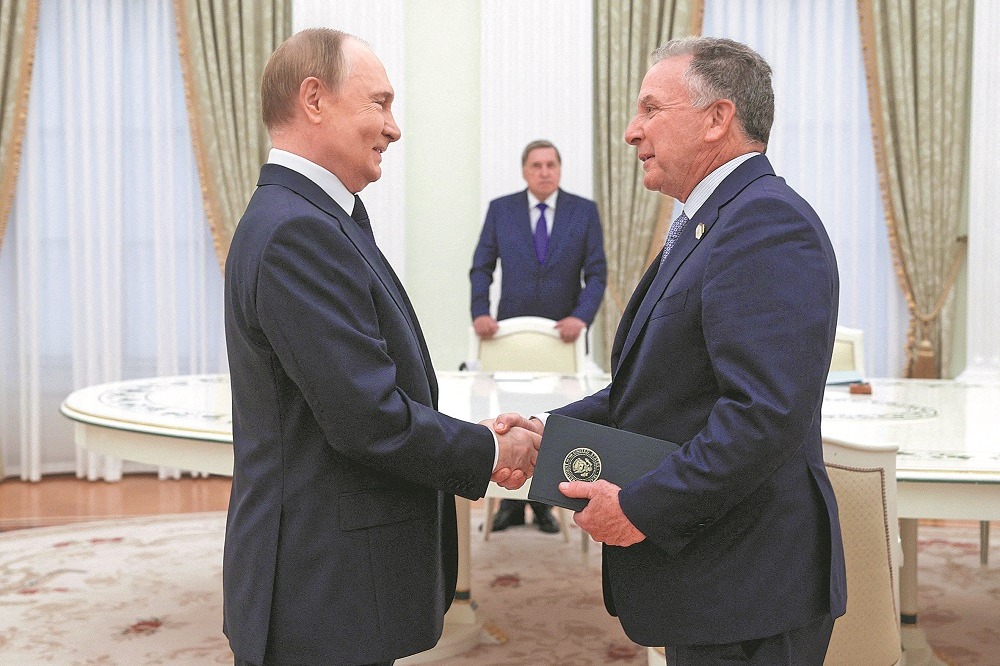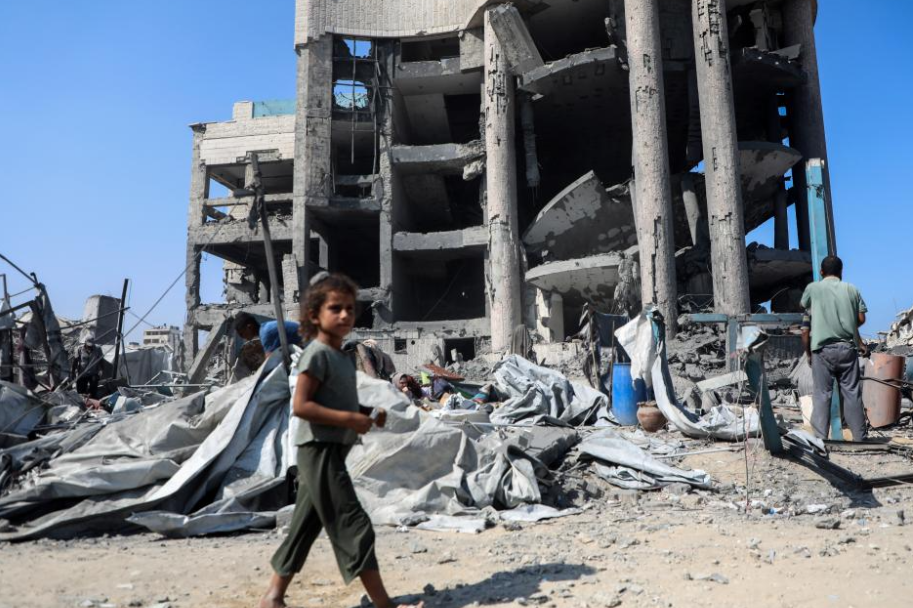Chinese film on Nanjing Massacre makes US?debut


China's Ambassador to the US Xie Feng attended the premiere of a film depicting the Nanjing Massacre on Tuesday in Washington, D.C., joining local audiences in reflecting on one of the darkest chapters of World War II.
The film, set during the 1937 Nanjing Massacre, tells the story of a group of Chinese civilians who find refuge in a photo studio during Japan's occupation of the city. Their sanctuary is disrupted when they are forced to assist a Japanese military photographer while uncovering photographic evidence of mass atrocities. Risking their lives, they hide the negatives and launch a daring effort to preserve the truth.
Inspired by authenticated wartime photographs, Dead to Right is more than just a cinematic retelling — it carries significant historical and educational value, said director Shen Ao. Its US premiere comes ahead of the film's wider international release on Aug 15, with openings planned in Australia, New Zealand, Canada, Malaysia, Singapore and other countries.
The film has topped box office charts in China and is one of the country's most prominent overseas releases since the success of Ne Zha 2.
Xie said that during the Chinese People's War of Resistance Against Japanese Aggression (1931-45) and the global fight against fascism, the Chinese and American peoples stood shoulder to shoulder in solidarity, leaving behind a historic legacy of jointly safeguarding peace and justice for humanity.
In today's era, there is no justification for conflict or confrontation between China and the United States — only a shared responsibility to uphold peace. The two countries should work together to forge a new path of mutual respect, peaceful coexistence and win-win cooperation in the new era, he said.
While the film's original Chinese title translates to Nanjing Photo Studio, its international title, Dead to Right, evokes not only the undeniable photographic evidence of Japan's invasion, but also the resilience of the Chinese people through resistance.
According to Shen, the title carries a deeper message of a commitment to remembering the past while forging ahead with courage.
Shen said the team is actively working to release the film internationally. He expressed hope that audiences around the world will learn about this history, and that all nations will confront the past with honesty, cherish peace and pursue strength with resolve — just as the international community once played a role in helping to halt the atrocities of the Nanjing Massacre.
"This was an extremely moving performance here today — I mean, it's a real tearjerker," William Jones, Washington Bureau Chief of Executive Intelligence Review, told China Daily after the screening. "Very important, given the fact that we do have the anniversary this year. This is something people are not aware of here in the United States — at any rate, to the extent that they should be — and hopefully this film will help build that opinion."
Jones said he was particularly struck by the narrative thread built around photography in the film.
"I think the important thing was the theme of the photographs running through the film, which I think gave it a focus of a type that got people to understand how this happened and how it was revealed. And I think that was a very important story that people really didn't know," he said. "This was also shocking. But throughout the film, just the brutality of the whole situation and the people involved in it, their bravery — the bravery of the Chinese people in the movie — and the atrocities conducted by the Japanese were really terrible."
"It's also important that Americans understand the reality of World War II, in which we were working together with countries like China, to defeat the kind of brutality that we saw in this film," he said. "The United States is not going to become great by working on its own and cannot become great without working with countries like China, and indeed with Russia, but particularly China. I think that there will be an understanding of this at some point when we have gotten away from the more hysterical rhetoric that we hear."
Though unfamiliar with the story beforehand, Nolan McDougal, manager of the local AMC Theater, told China Daily that he was intrigued after learning the film centered on the Nanjing Massacre.
"I actually remember doing a project on that back in high school or college. Now that I know this movie is about that, I would definitely watch it," he said. "I didn't realize it was part of the anniversary of World War II. That definitely adds more weight. I mean, World War II was nasty, but at least countries like America, China and the UK were working together to stop it."
"I'm not super familiar with a lot of Chinese movies," said McDougall, "but I remember the older ones — like Kung Fu. I still have those on DVD. It was fun seeing everybody. The whole lobby was packed. People were asking, ‘Why is it so busy on a Wednesday?' and I said, ‘It's this movie that's blowing up in China.'"
"Sometimes Chinese movies get overshadowed by Disney and the big titles, but this one looks like it could sell out, like Ne Zha 2 did. The posters were really well done — I didn't get to see them until today, but now I want to watch it," he said.

































